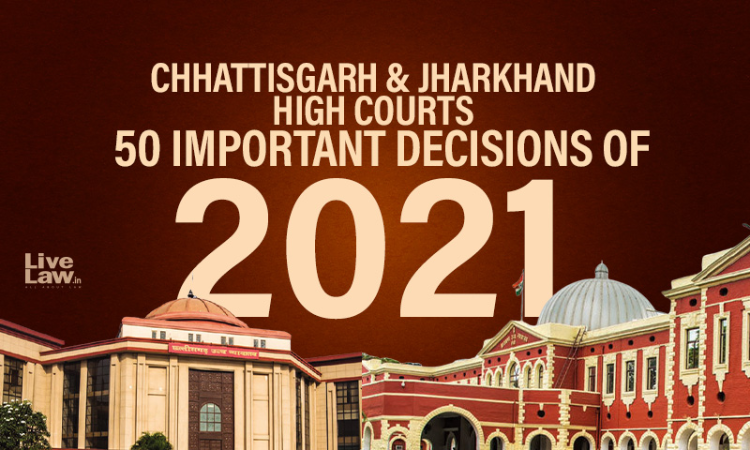Chhattisgarh And Jharkhand High Courts: 50 Important Judgments Of 2021
Sparsh Upadhyay
2 Jan 2022 7:51 PM IST

Next Story
2 Jan 2022 7:51 PM IST
As we step into the year 2022, LiveLaw brings to you a bunch of important decisions from the Chhattisgarh & Jharkhand High Courts of 2021. This digest includes 50 important orders and judgments.Chhattisgarh High Court 1. When A Man Marries A Woman Knowing Fully That She Was Not Legally Divorced From Her Earlier Marriage Can't Plead Invalidity Of Marriage In 125...
